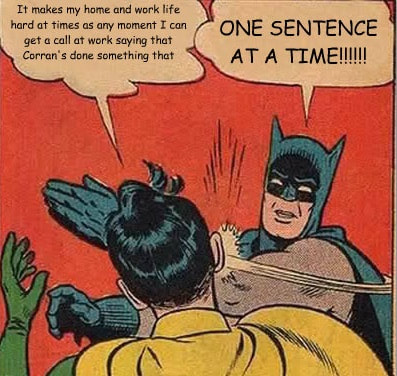AuthorHi, I'm Ray Evans. I'm a certified copyeditor and proofreader. Archives
September 2023
Categories |
Back to Blog
I understand that the English language is a confusing and tricky beast, so I wrote this article to help you navigate it with ease. Let me be your personal grammar sherpa, guiding you away from the treacherous pitfalls of misplaced apostrophes and dangling modifiers. Grammar mistakes are the best way to ensure your writing will never be taken seriously! So this series of self-editing tips is designed to help you polish your writing. Let's dive in! What is a Run-On Sentence?A run-on sentence is when two or more independent clauses, separated by either a comma or a semicolon, are combined without proper punctuation. An independent clause is a group of words that makes a complete sentence. It has a subject and a verb and can stand alone as its own sentence. It doesn't need any other words to make sense. Plus, if you want to sell lots of books, run-ons just won't cut it! Examples: 1. I love to eat ice cream it's my favorite dessert. 2. I wanted to go to the store but it was closed. 3. She was so tired she couldn't keep her eyes open. I bet a lot of you think that run-on sentences are just really long sentences that keep going and going like the Energizer bunny. Eh, not always. Run-on sentences are sentences that don't have ANY punctuation so length isn't really how we determine if a sentence is running on (like our examples above). How to Avoid1) Use punctuation, periods, commas, and semicolons as necessary to separate your clauses. 2) Use a period to separate the two clauses into separate sentences. 3) Avoid using conjunctions to join two closely related, but still separate, ideas. 4) Break up lengthy sentences into two or more concise, distinct sentences 5) Use a conjunctive adverb: A conjunctive adverb is a type of adverb that is used to connect two independent clauses in a sentence. It is used to provide additional information or to indicate a relationship between ideas. Common conjunctive adverbs include therefore, however, moreover, nevertheless, and furthermore. Now, Let's Fix The Examples from Earlier!1. I love to eat ice cream, it's my favorite dessert.
2. I wanted to go to the store, however, it was closed. 3. She was so tired; she couldn't keep her eyes open.
0 Comments
Read More
Your comment will be posted after it is approved.
Leave a Reply. |
 RSS Feed
RSS Feed
